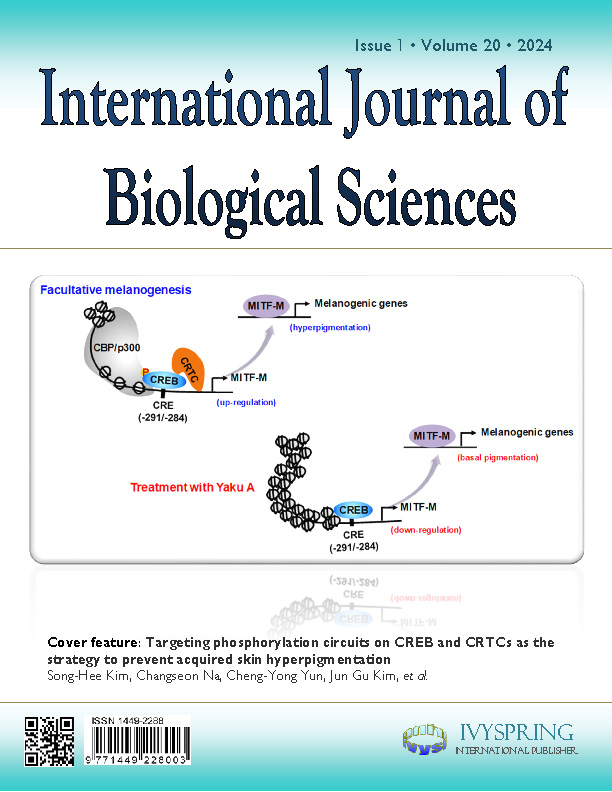慢性炎症与消化道癌症之间的桥梁:先天性淋巴细胞在肿瘤微环境中的关键作用
IF 8.2
2区 生物学
Q1 BIOCHEMISTRY & MOLECULAR BIOLOGY
引用次数: 0
摘要
消化系统相关癌症的发病率和死亡率一直居高不下,这归因于消化系统免疫微环境的异质性和复杂性。此外,多项研究表明,消化系统中的慢性炎症是癌症发病的罪魁祸首;因此,控制炎症是阻止癌症发展的潜在策略。先天性淋巴细胞(ILC)是与 T 细胞不同的异质性淋巴细胞群。它们以不依赖抗原的方式与细胞因子和免疫细胞相互作用。在消化系统癌症中,从炎症阶段到肿瘤的发展、迁移和转移,人们发现 ILC 与免疫微环境相互作用,并控制或促进这些过程。传统的消化系统肿瘤治疗方法疗效有限,因此,与ILC相关的免疫疗法是一种很有前景的策略。本研究综述了不同ILC亚群的特征,它们如何与免疫微环境以及慢性炎症相互作用并产生影响,以及它们在四种常见消化系统肿瘤(包括胰腺癌、结直肠癌、胃癌和肝细胞癌)中的促进或抑制作用。综述特别强调了ILC在慢性炎症与癌症相关联方面的作用,以及通过细胞因子疗法和收养性免疫细胞疗法增强免疫疗法的潜力。本文章由计算机程序翻译,如有差异,请以英文原文为准。
Bridging Chronic Inflammation and Digestive Cancer: The Critical Role of Innate Lymphoid Cells in Tumor Microenvironments
The incidence and mortality of digestive system-related cancers have always been high and attributed to the heterogeneity and complexity of the immune microenvironment of the digestive system. Furthermore, several studies have shown that chronic inflammation in the digestive system is responsible for cancer incidence; therefore, controlling inflammation is a potential strategy to stop the development of cancer. Innate Lymphoid Cells (ILC) represent a heterogeneous group of lymphocytes that exist in contrast to T cells. They function by interacting with cytokines and immune cells in an antigen-independent manner. In the digestive system cancer, from the inflammatory phase to the development, migration, and metastasis of tumors, ILC have been found to interact with the immune microenvironment and either control or promote these processes. The conventional treatments for digestive tumors have limited efficacy, therefore, ILC-associated immunotherapies are promising strategies. This study reviews the characterization of different ILC subpopulations, how they interact with and influence the immune microenvironment as well as chronic inflammation, and their promotional or inhibitory role in four common digestive system tumors, including pancreatic, colorectal, gastric, and hepatocellular cancers. In particular, the review emphasizes the role of ILC in associating chronic inflammation with cancer and the potential for enhanced immunotherapy with cytokine therapy and adoptive immune cell therapy.
求助全文
通过发布文献求助,成功后即可免费获取论文全文。
去求助
来源期刊

International Journal of Biological Sciences
生物-生化与分子生物学
CiteScore
16.90
自引率
1.10%
发文量
413
审稿时长
1 months
期刊介绍:
The International Journal of Biological Sciences is a peer-reviewed, open-access scientific journal published by Ivyspring International Publisher. It dedicates itself to publishing original articles, reviews, and short research communications across all domains of biological sciences.
 求助内容:
求助内容: 应助结果提醒方式:
应助结果提醒方式:


